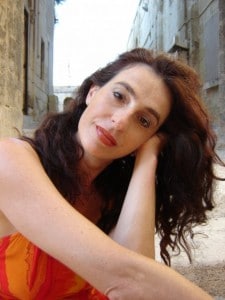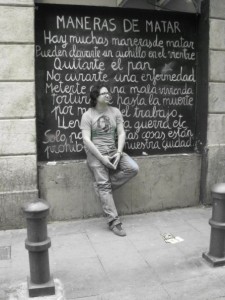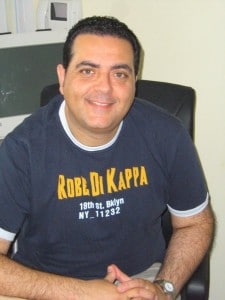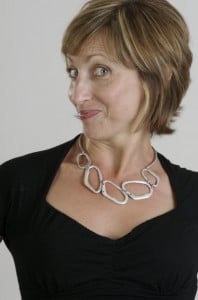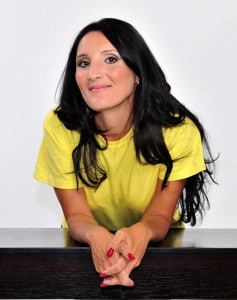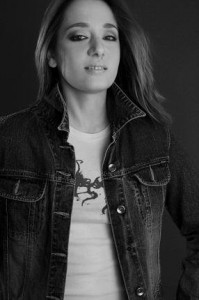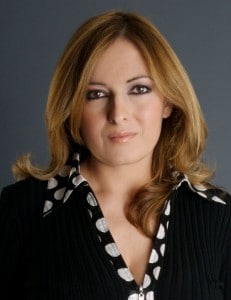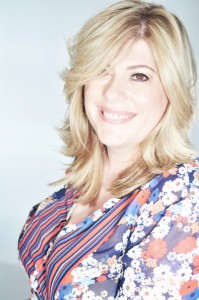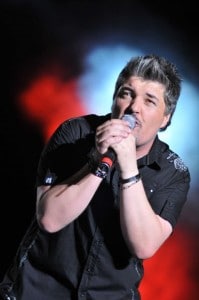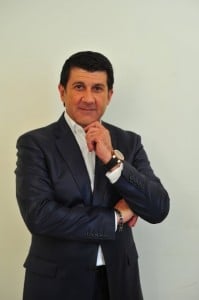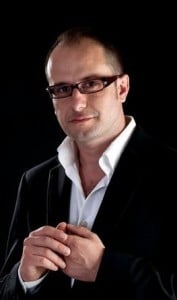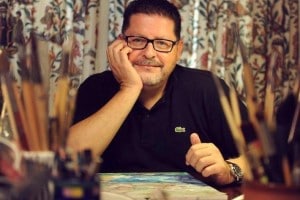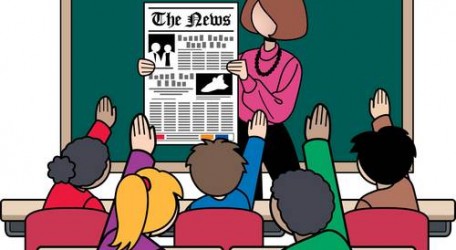
State, church or private schools: Does it really matter?
I ask a few high achievers whether the school they went to had any bearing on their later success
Malta’s educational system has always fascinated me because, for such a small country, there are some very drastic differences between the various types of schools and their respective ethos. Personally, it took me years to understand that ‘where you went to school’ can mark you for life in this country. Each school seems to churn out students with similar accents, attitudes and behaviour, while simultaneously signalling to people your socio-economic background. This was all alien to me, coming as I was from an American school system where rich kids and poor kids rubbed shoulders in the same public (state) schools.
Here, friendships and social networks can often be traced back to one’s school days and it is not uncommon to meet people who are still close friends even though it’s been over 35 years since they left secondary school. The use of the Old Boys’ network, in fact, is a very powerful tool to open doors and opportunities.
Speaking to people about their alma mater often reveals a sentimental attachment which runs deep; they recall with immense pride the ethos of their school which they insist not only gave them their formation, but moulded their characters to this day. To cite one example, I was told in great detail how convents such as Sacred Heart have churned out ladies of backbone, who were not only successful in their own lives, but have contributed greatly to philanthropy and social causes. Another acquaintance described how it was drummed into her by the nuns at St Joseph’s Sliema that “your parents love you very, very much for sending you to a church school”, the implication being that parents who send their children to government schools did not really love them.
As someone who has always (happily) attended a state school, both here and in the US, I find statements such as this extremely bewildering, if not perturbing.
So does the choice of school really matter in the long run? Do people tend to send their children to the same school they went to? Let’s find out:
Marvic Doughty (Bank manager and actress)
“I attended Hamrun primary, Tas-Samra secondary and Maria Regina secondary girls’ school followed by Sixth Form at the New Lyceum. Of course, the school leaves a great impact in many ways, and there were negative aspects which I encountered more than once like bullying. On the other hand, there were positive aspects that left a great mark on my life. Mainly these were the theatre activities at Maria Regina and at the New Lyceum which was the fundamental start of my career in theatre.”
Astrid Vella (Volunteer in the fields of heritage and environment)
 “My time at Sacred Heart was totally formative to what I’m doing now, in ways that go far beyond the educational. The nuns always made it clear to us that we could be whatever we aspired to be. Never once were we encouraged to believe that making a good marriage to a successful man and becoming a wife and mother should be our only aspiration. In fact although domestic science was taught, it was not presented as a prime option. We were not taught secretarial skills, instead we had a debating society where we learnt to stand up for our convictions and practice public speaking. In fact, unlike other convent schools and government schools, Sacred Heart encouraged its students to question and to have an independent mind of their own.
“My time at Sacred Heart was totally formative to what I’m doing now, in ways that go far beyond the educational. The nuns always made it clear to us that we could be whatever we aspired to be. Never once were we encouraged to believe that making a good marriage to a successful man and becoming a wife and mother should be our only aspiration. In fact although domestic science was taught, it was not presented as a prime option. We were not taught secretarial skills, instead we had a debating society where we learnt to stand up for our convictions and practice public speaking. In fact, unlike other convent schools and government schools, Sacred Heart encouraged its students to question and to have an independent mind of their own.
Women’s equality was not an issue, it was simply taken for granted. From 4th Form we were encouraged to take initiatives in like organising annual shows ourselves, without any input from teaching staff. The panto-like shows were completely written and organised by us, while other productions ranged from Oscar Wilde to rock operas.
It is very difficult for someone who didn’t attend Sacred Heart in our time to imagine it, as the normal idea of nuns is that of old-fashioned close-minded discipline, whereas our Headmistress, Sister Lee, was anything but stereotypical but liberal to the point of being almost Bohemian, if such a thing can be combined with ‘nunhood’. We were not taught grammar, and very little spelling, for fear that it would ‘inhibit our creativity’ (my mother went ballistic when she heard that one!). However having a wonderful library meant that most of us became avid readers and learnt our spelling that way. We never, ever learnt by heart, much of the learning was through project work, about 20 years before that entered the mainstream curriculum.
Of course it was not all rosy. Sacred Heart laid huge emphasis on sporting prowess and predictably enough, there was a lot of snobbery, both of which exposed students to bullying which was not taken as seriously as it is today, so we had a tough time. On the other hand, I’m sure that having survived that bullying as a child served me well later on.
Unbelievably, we were never pressed to be religious or academic. Because of this lack of pressure the girls were allowed to work at their own pace, with students leaving as high-flyers or scraping through miserably and everything in between. Still, at the time that we joined University, Sacred Hearters made up exactly 50% of the female population, an outstanding result considering that other schools had a much more intense academic programme, and that Sacred Heart accounted for a very tiny fraction of the national female student population.
When one thinks of Sacred Hearters who have made a name for themselves, the majority have excelled in the social sciences and civil society, or the creative fields of writing and art. It is surprising to see that the nuns seem to have imparted a very strong message of service to others, in spite of Sacred Hearters’ reputation as society snobs. And again, very surprisingly, these same women turned out to be not only socially-aware but not afraid of ‘getting their hands dirty’, and are more active in their careers or hands-on voluntary work than at the card tables.
The one sector that’s noticeable by its absence is politics. There is not a single Sacred Hearter who is an elected politician. One reason for this could be the fact that Sacred Hearters have been too drilled in independent thinking to willingly submit to toeing a party line at all costs.
As for my children’s school, I chose the school that most closely resembled the old Sacred Heart liberal and creative approach – San Anton School. My husband initially found the lack of pressure very heard to stomach, but our children thrived on it and proved our faith in the system.
Moira Delia (TV presenter/producer and animal activist)
“The choice of school matters a lot to me! Attending St. Dorothy’s primary school gave me a strong start to my English language diction which I still find so helpful when presenting in English. On the other hand my Maltese was going from bad to worse so I switched to a Junior Lyceum at secondary level, where I had to really work hard on my Maltese. Today I can easily switch from one language to another which I find is so necessary.
My son attends Chiswick/ St.Martin’s and I’m happy to say that he has achieved a very good foundation in English. As for Maltese I make sure that we speak the language at home and so far he gets very good marks in both.”
Immanuel Mifsud (writer)
“I went to a state primary school in Paola but then was sent to a Church secondary school, St Paul’s Missionary College, Rabat. Most probably my parents could not afford to pay for a church school and at that time (late 1970s) schools like De La Salle College were actually choosing which students to admit. I did not have a chance since I did not hail from the elite or even the middle class. Anyway, St Paul’s used to admit only a maximum of 60 pupils, and charged no fees, no donations and no hidden charges either.
I think my secondary education had a lot to do with my choice of career and what I have achieved in my adulthood although I cannot really identify what led to what. All I can say is that the school ethos gave much more importance to education than to schooling, which was fine with us.
I am not sending my son to the same school simply because until last year St Paul’s was only a secondary school (they’re opening the primary this year) and my son was picked by the lottery system to go to Stella Maris, Balzan.”
Dr Kirill Micallef Stafrace (sports medicine consultant)
“I attended a church school for both primary and secondary. Yes, the school you go to does make a difference but even more so the parenting. I was lucky that my parents took a direct interest in my studies up to ‘O’ level but at the same time they understood that extra curricular activities were vital.
In fact, during medical school I postponed my exams twice in order to take part in international sport tournaments – something frowned upon by many of my fellow students and even more so by lecturers. I think my parents were street wise enough to know life is not made up only of books.
Having said that, I matured most when I went overseas (at my own expense) to further my studies. In Malta we are too sheltered with free education everywhere and no need to earn your keep.”
Malcolm Galea (actor/playwright)
“I’ve always attended state schools. I went to Birzebbuga primary and when we went to Australia I attended Lockington Consolidated primary school followed by Rochester secondary college. On our return back toMaltaI went to Guze’ D’Amato boys’ secondary school in Paola. This was an area secondary and I was held back a year to do Form 3 and stayed there until Form 5. From there I went straight to Junior College and then university.
I actually found my secondary school quite helpful. By the time I got to Form 5, most kids had turned 16 and stopped coming. This made classes very small and teachers could really focus on the ones that were interested in taking ‘O’ levels. I hardly went to any private lessons and mostly I just went for subjects that weren’t taught at our school – like accounts.
My wife went to a government school also although for our son we’re looking at private schools. The main reason I guess is that we’d like him to be with our friends’ kids. We don’t think the level of education is any different.”
Dr David Friggieri (EU lawyer and columnist)
“I went to a church school at pre-grade level in Oxford, UK. Later I went to Stella Maris College, Gzira (primary and secondary) and finally Sixth Form, St Aloysius College.
I’d say that all my schools provided a solid basis and the right tools for anyone who wanted to do well in life. But I guess it’s the choices you make after the age of 18 that mould your career.”
Dr Charles Azzopardi (family therapist)
“I went to a state school for both primary and secondary. I don’t think the school had anything to do with my achievement and if anyway, it affected me in a negative way. I think other factors influenced my progression in life.”
Carlo Borg Bonaci (TV presenter/DJ)
“I went to church schools, first St Joseph’s and then St. Augustine’s College. It wasn’t my choice obviously but I don’t regret it. In fact, I have given both my sons the same education.”
Caroline Muscat (freelance journalist)
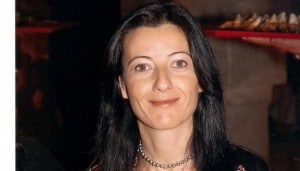 “I attended St Catherine’s for primary school, then St Dorothy’s for secondary. Sixth Form was at Junior College followed by tertiary education in the UK.
“I attended St Catherine’s for primary school, then St Dorothy’s for secondary. Sixth Form was at Junior College followed by tertiary education in the UK.
When I entered the work force I was completely unprepared and learnt everything I know today through different work experiences in Maltaand abroad. I succeeded as a result of ambition and sheer hard work. At a Catholic school, I was told we came from Adam and Eve rather than learning the theory of evolution. As a girl, I was taught to prepare myself for a future as a wife and mother. These were the ideas that filled my head until I reached the age of reason and questioned everything I knew. I had to work against what I was taught at school to be able to fulfil my potential as an individual.
Even University did not encourage critical thinking – or at least we were totally unprepared for that in the lead up to it. The UK experience was completely different – it combined theory with practice and was applied to today’s reality. It was really an eye-opener on just how lacking Malta’s education system is. I hope that things have changed since my time.”
Isabel Warrington ( graphic designer/magazine editor and actor)
“I went to St Joseph school, Sliema for both primary and secondary and yes, it did have some influence on my career. I think the discipline and respect for our superiors were the two most influential factors. The subjects we were taught were mostly academic and although I didn’t excel in them, they certainly helped me in later life.”
Claire Agius Ordway (TV presenter/producer/actress, Director at Zoo Media & Entertainment)
“I went to St Joseph primary school in Paola and for secondary I switched to Maria Regina, Junior Lyceum. The only difference is that at St Joseph’s we had only one class and at the Junior Lyceum we had 10 classes in our grade. I was a very quiet and shy person and always had the same circle of friends. I don’t think that the schools influenced what I do today as I never took part in any school play and never stood out at anything. I studied theatre years after when I was 19.
When it comes to my kids, whether it’s a Church school, private school or state school, it is more the method of education which I research. I look at the educators’ approach and the activities they offer. If I am happy with the environment and what the school offers during the year, I am more than happy that my child attends that particular school.”
Rupert Cefai (artist)
“I went to a state primary school and attended Tal-Handaq Junior Lyceum
Yes, I believed my schooling influenced my career a lot and in a positive way. We had some of the best teachers in Malta between ‘82-‘87, with very good artists and facilities.
I don’t have children, but ideally I would send them to a state school and invest money in a good university abroad. Unfortunately from what I’m hearing about the state of government schools, before making such a decision I would need to carry out some real research.”
Vanessa Macdonald (Manager of Public & Media Relations/Corporate Communications at GO)
“My recollections of being the “top of the class” and the bookworm are not as warm as other people’s may be. In spite of having very close friends (including one who is my closest friend to this day), I hated Sacred Heart and did not find room for personal development and growth until I got to De La Salle Sixth Form. Perhaps it was the “all girl” environment for someone who was such a tomboy?
I am grateful for the school’s philosophy though – and the holistic approach to our education, the streaming, the extracurricular activities like drama, well-stocked library and debating society no doubt allowed my academic side to flourish. I think I sat for 14 O-levels plus 2 matrics – I could not choose between arts and sciences and the school was flexible enough to let me do both.
I sent my children to St Michael’s Foundation because I thought it too had the same emphasis on school being more than just exams – at the time it offered ballet, jujitsu, and both football and tennis, if I recall. It also had a strong drama and arts programme.
Incidentally, I was a scholarship girl at Sacred Heart. My father was a manager with BP, which was nationalized when Mintoff came into power in 1971 and I have no idea whether I would have been able to stay on had I not had the scholarship.
I wonder if that made me feel insecure or inferior…”
Simone Cini (TV producer/presenter)
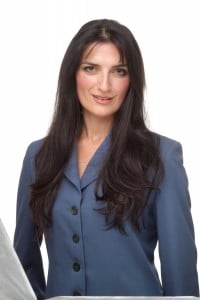 “I attended Immaculate Conception School in Tarxien from kindergaren to Form Five. It is a small school with just two classes in each grade and that helped as our head knew each and every one of us personally. I don’t know if it was just the era or the school but we were very disciplined there and the nuns helped in our formation. At that age, good examples and sound principles are important. I was very lucky to have good teachers. They might not all have had a degree, but they knew what teaching was all about and most of them were serious and mature not just youths having left university for real life at the age of 24 I went to Junior College and then to University.
“I attended Immaculate Conception School in Tarxien from kindergaren to Form Five. It is a small school with just two classes in each grade and that helped as our head knew each and every one of us personally. I don’t know if it was just the era or the school but we were very disciplined there and the nuns helped in our formation. At that age, good examples and sound principles are important. I was very lucky to have good teachers. They might not all have had a degree, but they knew what teaching was all about and most of them were serious and mature not just youths having left university for real life at the age of 24 I went to Junior College and then to University.
Today I send my daughter to the same school I went and my son to St Edward’s. I chose the latter on the basis of its past reputation and because it is the only all boys independent school in Malta. I don’t believe in co-ed education especially for senior schools. It is important for schools to have enough space for recreation and sports and that was also a factor I considered for both my children.”
Alison Bezzina (The Times blogger)
“I went to a Church school from primary to secondary. The first school was essentially a boys’ school – Stella Maris, Balzan –and we were only four or five girls in the whole school. While I don’t know what possessed my mother to send me there, I have to say that she made the right choice because I absolutely loved it! It might have had something to do with my very first teacher, Ms. Victoria, who was adorable and whom I’m still in touch with till this very day. I was only 4 years old at the time and I have no idea how I managed to maintain this relationship with my teacher of the time.
Although as a girl in an all boys’ school you’d expect to stick out like a sore thumb, nobody cared that I was wearing a skirt while they were wearing trousers. It was my first and greatest lesson in ‘live and let live’ I suppose. I was in my element and did very well but by Year 5 my parents had to find somewhere else for me to go to as Stella Maris did not have a secondary school.
I was then sent to Sacred Heart and this was, to say the least and to be polite, a culture shock. Not only was it the ‘girliest’ of girls’ schools with a completely different culture to the boys, but it was also totally English speaking, and with bitchy girl clans all over the place.
The education system also allowed that I could be moved from Stella Maris to Sacred Heart in middle of the scholastic year. Brilliant idea don’t you think? So I went to Sacred Heart in January of Year 5 when new clans had already been formed, and I had missed out on three months of schooling.
Then the teacher had yet another ‘brilliant’ idea. She decided that I should forfeit break time to stay in class and copy the work that had been done during those three months that I had missed…..brilliant pedagogy right? What were they thinking?
Anyway, to cut a long story short I hated it, and still do…. I hated it so much I don’t remember anything from that school. I practically obliterated it from my memory. At the time we were going through the Church school’s strike so I didn’t think it was opportune to tell my parents just how unhappy I was. I managed to hide this for a whole year until I finally got the opportunity to go to another school – this time St. Dorothoy’s in Mdina.
This time I started with the other girls and I fit in like a glove… I loved it and everything about it. OK, I hated the cold and humid building but it soon grew on me and I started to cherish the history around me. Soon enough I put that disastrous year behind me and it became the joke about which the other girls’ teased me.
I wasn’t a brilliant student but I got by with the above average percentile which wasn’t too high anyway…. after that I went to Sixth Form in Msida and then University.
I don’t think that the education I got had much to do with my achievements but that experience at Sacred Heart definitely shaped my character and made me stronger (and bitter for a while). Having said that, had Stella Maris had a secondary school on the same schooling level as the primary one, I might have ended up somewhere else….but that’s the way life goes.
If I ever had children I would be worried sick about their schooling. I know that a teacher or even just another student can shape a kid’s life forever. Some are bent out of shape and not just shaped to be stronger…. I would go through very thorough research before deciding on my kids’ education, and I’d make sure to visit uninvited and check things out. The stuff that goes on in schools can be horrendous and a proud child will not always tell their parents no matter how open the communication lines are. I’ve heard of a few bullying stories that are appalling and the teachers don’t always do much to help…the parents find out too late, when the children need psychological help. And there’s no way I would let that happen to my children without ending up in jail first!”
Trevor Zahra (author)
“I went to Zejtun Primary Schooland then moved to St Joseph Secondary technical school Paola. I continued my Sixth Form education at the same technical school and at the Lyceum, Hamrun. I got my teacher’s certificate from St Michael’s Collegeof Education. Yes, I believe that the schools I attended had a very positive influence on my career. I met great teachers that were an inspiration to me.”
Paul Giordimaina (musician)
“ I went to St Joseph technical school Paola and yes the school had great teachers and they had a very positive impact on me. Despite choosing music as my profession, the schooling I had there helped me tremendously in forming my career.”
Fleur Balzan (TV presenter/producer)
“I went to St. Dorothy’s Convent in Mdina then to De La Salle College 6th Form. The schools I attended made a huge difference to my life and I believe they had a very positive effect on the paths chosen later on in life.”
Francesca Scerri Rizzo (Aesthetician)
“I went to Sacred Heart, both primary and secondary and I believe that they were a very big part of who I am today….both in respect of teachers and the friends I grew up with. My 10-year-old son attends St. Michael’s Foundation. The environment is a happy and friendly one where I know he is well taken care of not only academically but also in personal growth.”
“I attended Senglea primary, Corradino boys’ school and Liceo Mikiel Anton Vassalli … In my opinion many things learnt in life are the result of experiences, adventures and challenges we shared with friends and colleagues throughout our school days. There were teachers who really had the quality to guide me and inspired me to give my best and fellow students whose determination challenged me and made me stronger. So yes school was also an important part of who I am today.”
John Bundy (TV presenter/producer)
“I attended St. Francis primary school Cospicua and St. Paul’s Missionary College in Rabat for my secondary education, then for the rest I went abroad. All I have to say is that both schools, but especially St. Paul’s, set me on the track I am on today. I owe it all to David Azzopardi who discovered my talents and helped me push forward to do what I am doing today. Thanks to all of them and to my parents, I am John Bundy.”
Sigmund Mifsud (Musician)
“I started my primary education at St Elisabeth School in Sliema and recieved my secondary level education at the Junior Lyceum, Hamrun. I obtained my OTD from the Technical Institute in Naxxar and my HTD from the Technical School in Rahal Gdid. I also attended the Johann Strauss School of Music for part-time courses.
I feel that teachers and lecturers have influenced my life in a positive way, obviously some more than others. In fact, I have taken interest in certain subjects because a particular teacher had the ability to get the class involved during class.”
Kenneth Zammit Tabona (artist)
“I received my education at St Aloysius college B’Kara where the Jesuits encouraged me to use my brain and not be part of a herd.”
Dorothy Bezzina (singer/teacher)
“I received my primary and secondary education at St. Joseph School, Blata l-Bajda and attended St. Aloysius Sixth Form. I do believe both schools played an important role in providing a holistic education, and I owe so much to a number of dedicated teachers and heads of school, who have helped me to grow intellectually, spiritually, emotionally, and creatively. I do, however, feel that family engagement within the school has also made a critical contribution to my development. I am now a teacher myself at Savio College, Dingli. Choosing to work in a church school was the natural decision. I am glad to be part of an environment based on family spirit, committed to providing students with opportunities which help them to grow in so many different ways and I hope that in a similar manner, I will be able to leave a positive impact on them.”
Miriam Dalli (TV presenter and Journalist)
“I attended St Joan Antide School in Gudja, for my primary years, which was a church school. But I couldn’t stand it any longer and I told my Mum that I did not want to go to a school where nuns were teaching. Needless to say my mother was on the verge of a panic attack. Then I continued my studies at the Junior Lyceum in B’Bajda, followed by Sixth Form at Junior College and then University.
Even though teachers might help or hinder a student, I can tell you that in my case it was 100% thanks to my Mum’s perseverance, patience and diligence that I continued studying and taking things seriously while leaving me ample space to practice what I liked to do best – furthering my career in the media. I can say that I owe it to her and my Dad.”
- October 8, 2011 4 Comments Posted in: Features

